Is Belgravia the new Downton Abbey?
Julian Fellowes’ new big-budget period drama stars Tamsin Greig and Harriet Walter, but will it live up to expectations, asks Charlotte Cripps

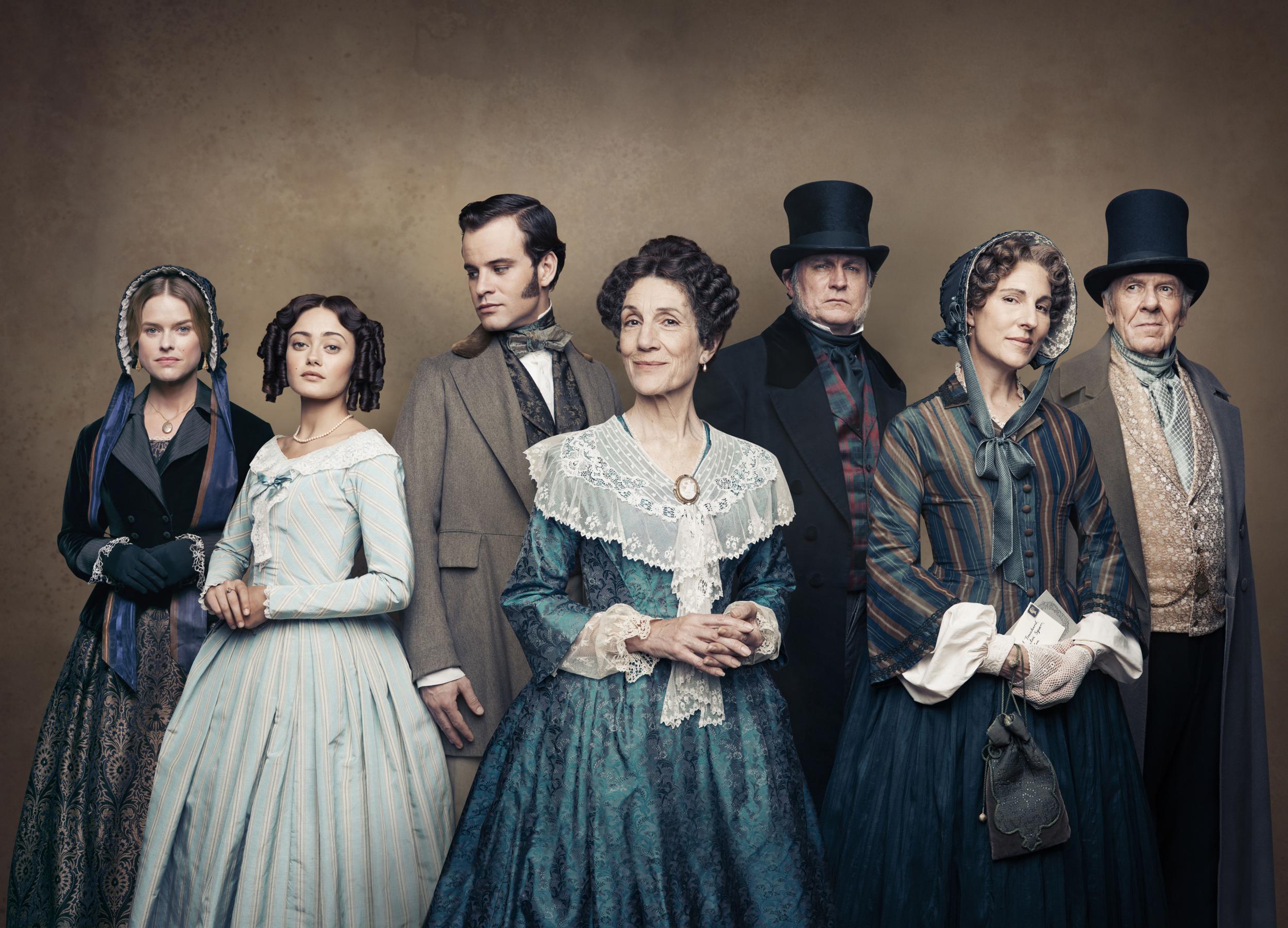
After six series of ITV’s Downton Abbey, followed by the 2019 feature film, fans of the aristocratic Crawley family have been left bereft. It’s true that there are other period dramas to tune into: Autumn de Wilde has reimagined Emma for the big screen; season five of Outlander is just finishing on Amazon Prime; and the fourth series of ITV’s Victoria is due out later this year. But nothing quite matches those tumultuous moments in Downton Abbey, such as when Lady Edith is jilted at the altar. So, will Belgravia fill the gap?
For a start, it has for the creator of Downton Abbey – Julian Fellowes – backed by the same award-winning creative team, Carnival Films. They have reunited to bring Fellowes’ 2016 bestselling novel of the same name to ITV as a big-budget period drama.
The six-part series is set in London’s poshest postcode, among the “upper echelon” of 19th-century society, so it’s bound to invite comparisons. But is Belgravia anything like the global hit?
“It seems to me to be a perfectly reasonable comparison,” chortles Julian Fellowes, projecting his voice as if he is on stage, when I ask him. “They are both period dramas and quite a lot about love – but then so is most fiction. It has similar concerns [to Downton], but it is a completely different structure, driven by a single narrative line. For me, this is a complete story, with a beginning, middle and end,” he says, suggesting that the series will be an adaptation of the novel with no more chapters to follow, “although whenever I say this to the actors, they disagree with me violently. We have to see if anybody wants some more.”
The drama, which has been snapped up by the US premium cable channel Epix, airs in the UK on Sunday and boasts a starry cast of British actors, including Tamsin Greig, Philip Glenister, Tom Wilkinson, Alice Eve and Harriet Walter – the only Downton Abbey actor to be hired for the new series.
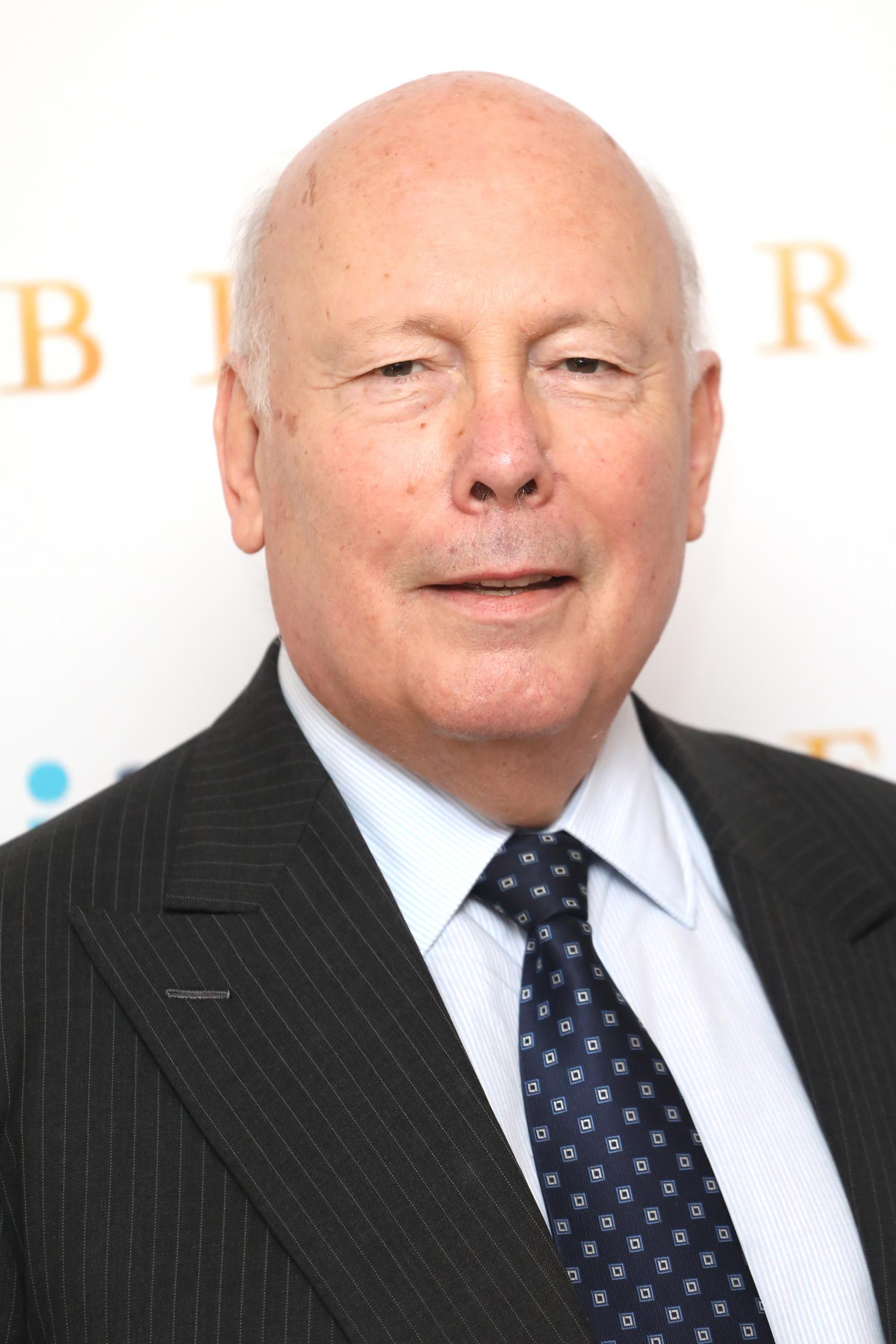
She’s an old friend of Fellowes, having met him when they were both 18, and is cast as the grand dame Lady Brockenhurst, whose only son and heir to the family seat has tragically died in the Battle of Waterloo. Little does she know of the secrets and scandals that will rock her world years later in Belgravia.
However, underneath the epic orchestral theme tune by John Lunn, who also scored Downton Abbey, is a different kind of saga of a family dynasty than that of the Crawley’s. It is less of a soapy look at life in both the master and servant’s quarters and more of a sedate tearjerker.
It follows the upwardly mobile Trenchard family who move to grand Belgravia and rub shoulders with the aristocratic Brockenhursts.
Anne Trenchard, played by Greig, and Caroline Bellasis, the Countess of Brockenhurst (Walter) have a lot more in common than expected, having lost a daughter and son respectively, many years previously. In fact, their children had a short-lived affair – which, it turns out, produced an orphaned grandchild.
“Yes, Belgravia is about the rise of the middle classes and the nouveaux riches overtaking the entitled aristocracy. But what unites Anne and Lady Brockenhurst and jumps all over social classes is grief,” says Greig, who is wearing a tight, black leather jacket done up to her throat and talks in the same slow and steady pace as her character, Anne – the steadfast matriarch of the Trenchard family.
Greig, who wrings unexpected pathos from Fellowes’ script, is just as capable of being profoundly moving as she is wickedly funny. Think of her as Beatrice in the RSC’s Much Ado About Nothing for which she won an Olivier Award for Best Actress in 2007. Or as the fiery Jewish mum Jackie in Channel 4’s long-running sitcom Friday Night Dinner. Or playing the neurotic surgical registrar Caroline Todd in its comedy series Green Wing.
She insists that we don’t talk about death enough: “Really the heart of it is a story of how people live with grief, and that is universal. It may well be one of our greatest problems today, that we just won’t sit with our grief.”
“It may be the root of our greatest preoccupation with staying young. If we stay young then we don’t have to deal with the big truth that we are getting old and we are going to die. And because we don’t engage with the little deaths along the way, we don’t know what it is to meet the big death at the end. For example, when children go to big school… we focus on how exciting that is going to be, but it is a little loss for those children, leaving their known universe… We distract ourselves, rather than say ‘How does this feel?’ When the losses don’t get mourned… they are going to come out somewhere – often in destructive behaviour and depression.”
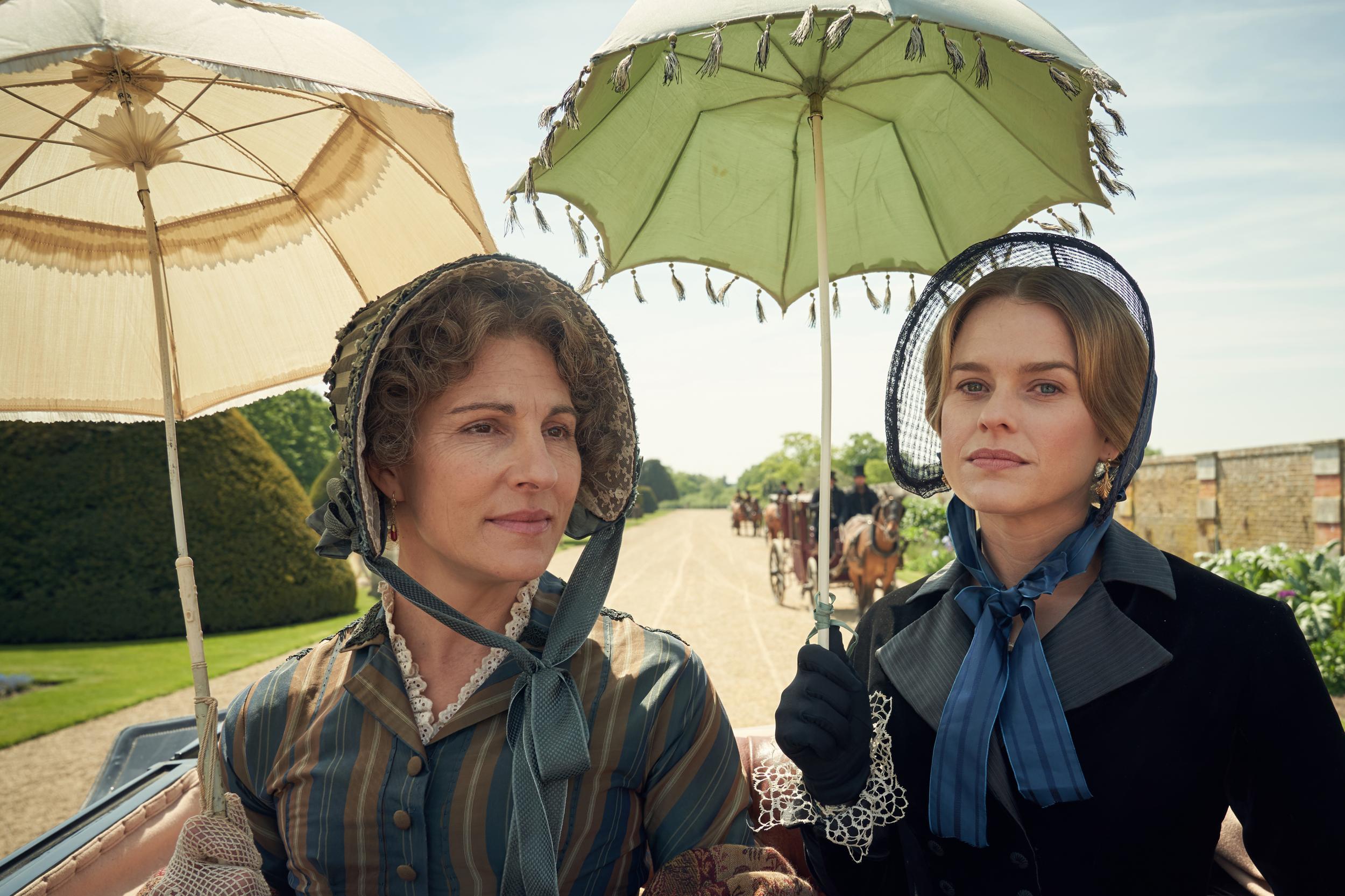
Fellowes, who won a Best Original Screenplay Oscar for Gosford Park in 2002, admits that he is drawn to period dramas, partly because “it is what people want me to do”. He is also attracted to writing female characters in his work.
“However strong the women were, they were up against a considerable amount of barriers that were there to prevent them doing what they wanted to do. And when women in history were clever and ambitious, as of course they were, as in any time, they had to find their way around all this stuff. I think that creates a tension in their story that is quite interesting to watch. I mean every now and then you get a character like Sybil in Downton who just thinks, ‘Oh sod it, I’m going to do what I like.’ But most people didn’t want to be outcasts in society – they wanted to still be in it – but they wanted to do what they wanted.”
Fellowes, who had six hours within which to adapt a not particularly long novel, says it was a “quite luxurious” job, as he didn’t have to cut much of the story. He was fascinated by Belgravia – “this spangled city for the rich”, as Lady Brockenhurst refers to it – that was built by the Cubitt brothers in the early 19th century on nothing but marshland.
The story begins at the now-famous Duchess of Richmond’s ball on the eve of the Battle of Waterloo and then jumps 24 years ahead, by which point you realise how good the CGI effects are that make Greig and co look much younger.
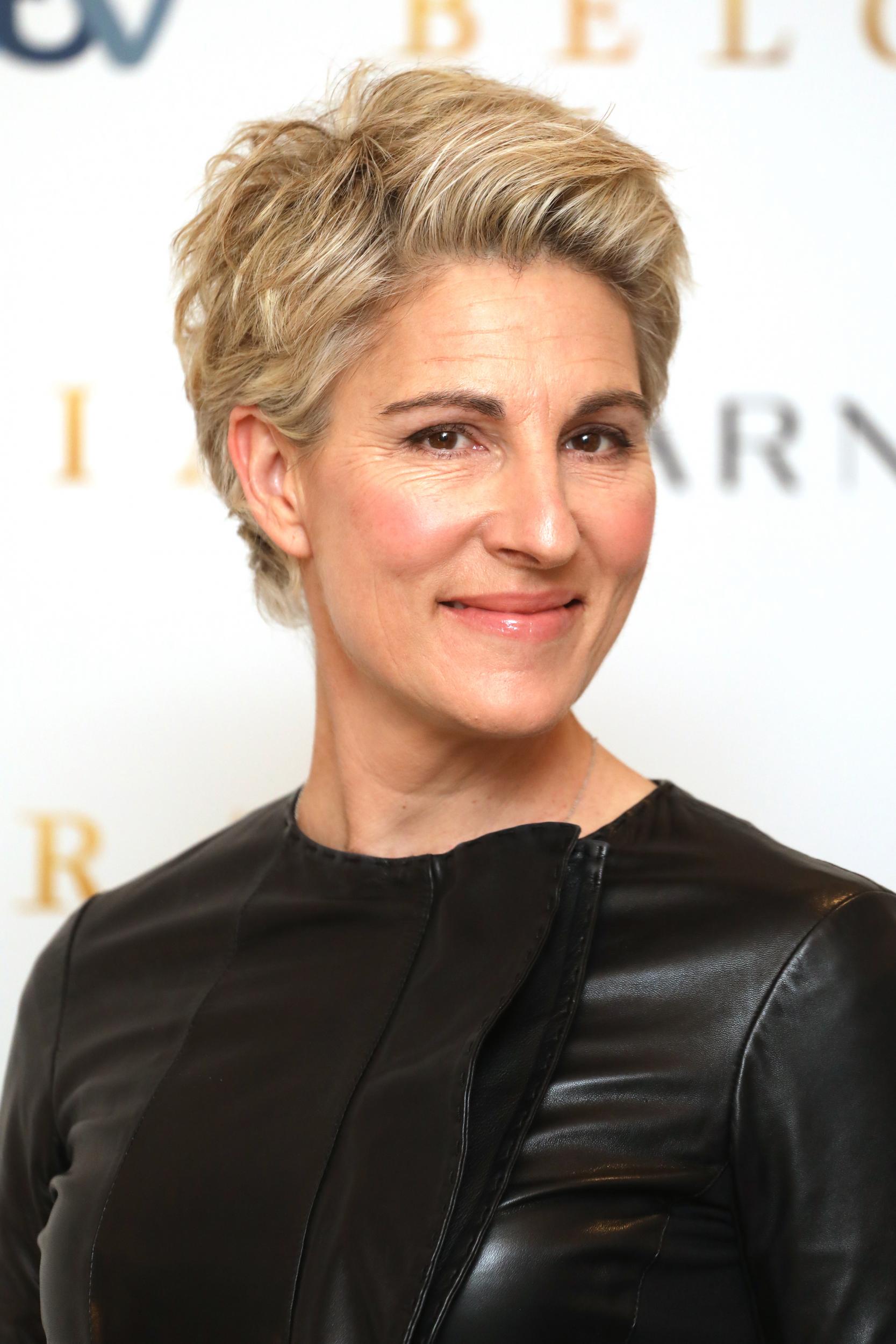
Fellowes, who’s now 70, has an HBO series The Gilded Age set in 1880s New York that has been dubbed the American Downton Abbey, and a Netflix docu-drama about the birth and rise of football, The English Game, out this year. Yet, he says he isn’t seen as relevant anymore, because of his age.
“You are aware that there is a benevolent tolerance of what you are thinking or saying after a certain point,” he says. “There’s no hostility. I’m not feeling the wounded victim. I don’t think it is a new thing. I’m sure that it was true in 1560, except in that period it was probably when you were 50.”
Fellowes’ period dramas stick to the tried and tested formula of success, and Greig has been more experimental in her career, busting gender stereotypes by playing a female version of Malvolio in Twelfth Night at the National Theatre in 2017 and starring in Jamie Lloyd’s 2018 production, with ”colour-blind” casting, of plays by Harold Pinter.
Given Belgravia’s all-white cast, does she think that this should be happening more in TV?
“I think it is happening to a degree – if you look at Bodyguard for example – there was a lot more inclusivity and diversity in that than is actually reflected in the real world, so people who worked in those upper echelons of the police were saying, ‘Well that totally isn’t how it happened, as you wouldn’t have that many women in positions of power,’ but I think if TV begins it and people are seeing it there then it may well filter out from there. Then you get a brilliant version of David Copperfield that has just been done with Dev Patel [in the lead role] – so it is possible. They didn’t choose to do it in Belgravia, but there was great diversity and inclusivity in the crew, so it was behind the scenes. I think we are in really interesting times and now might not be the time to shout about why it isn’t fully finished. It is still in a process of development and evolution and that is really exciting, as long as the momentum keeps going.”
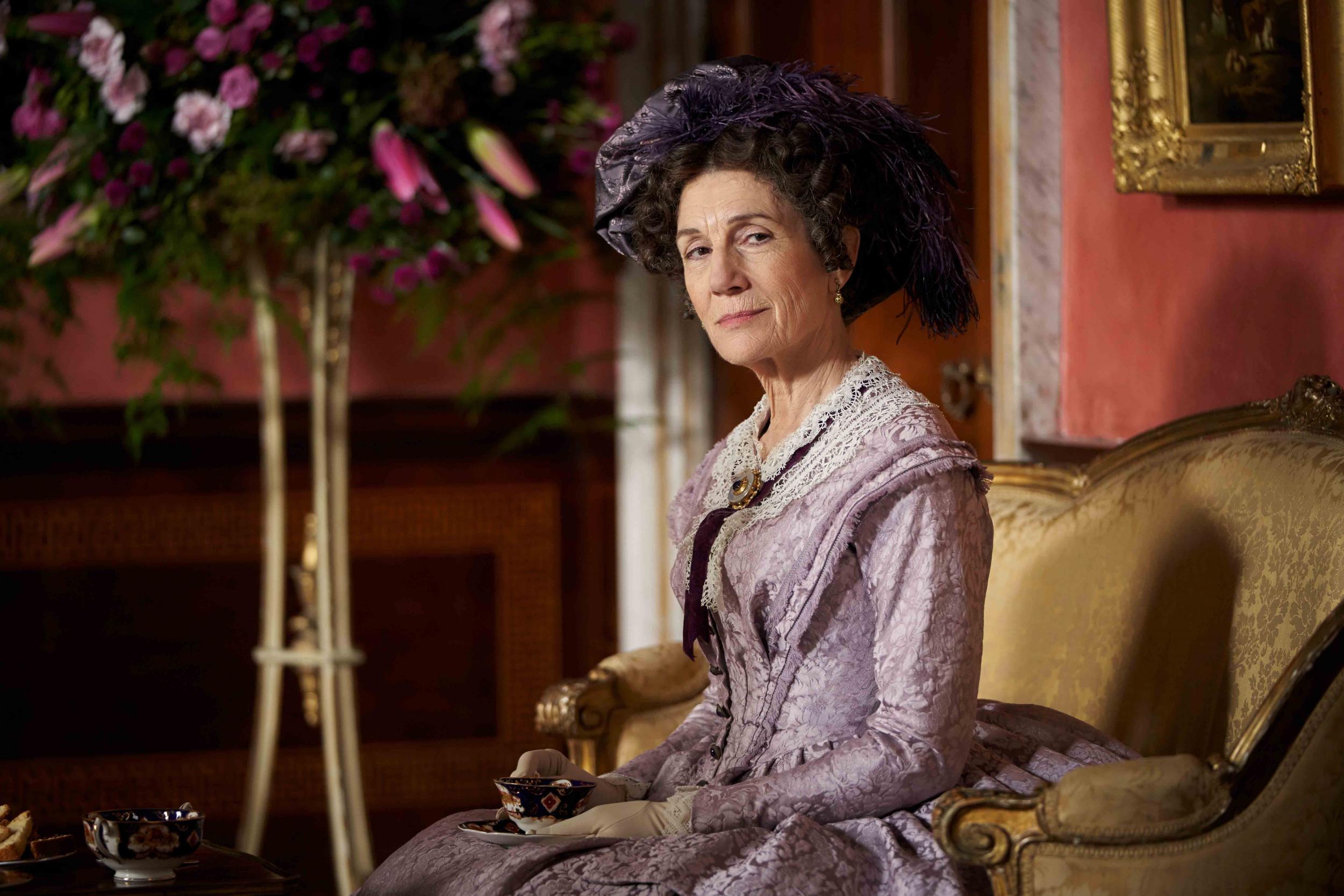
Ever since the TV series Upstairs, Downstairs, which ran in the 1970s, Joseph Losey’s The Servant in 1963 and Downton Abbey (2010-2015), we have been obsessed with dynamics between masters and servants.
In Belgravia, however, the servants don’t have their own storyline other than their reaction to the central plot of the story.
As it unravels, the servants, who are mostly loyal in Downton, here conspire to cash in on the family scandal.
“There must have been thousands of people doing these jobs who didn’t particularly like it – it was just a job – and I think that it is always quite nice to be reminded of this slightly strange situation where you are living your life like a family but around you in the attics and kitchen are people who are always there,” says Fellowes. “They can walk into the room at any time but have no emotional connection with you at all. It’s quite a strange concept which I think is interesting to explore.”
Greig, who reunites in Belgravia with her onscreen husband from Friday Night Dinner, Paul Ritter, as the Trenchard’s long-serving butler Turton, says: “Belgravia is not just a story about upstairs and downstairs. It’s much more complex, there is no vertical divide between masters and servants. They seem more like a Greek chorus commenting on the essential action and working out how they can manipulate it. The characters are much more three-dimensional… Julian is very good at spinning webs that affect people on all levels of society, not just employers and employees.”
She had to wear a corset for 12 hours a day – “it was pretty tough”, says Greig – who hired an osteopath “quite quickly” during filming and thinks she should have prepared herself better for the ordeal.
“Apparently for spine health the best thing is to be able to move and breathe – neither of which you can do. But it taught me a lot about how women were agreeing to be constrained,” she says.
Belgravia has all the old class-ridden Britishness, snobbery and rituals, such as afternoon tea, that give it that Fellowes stamp.
But what is the enduring appeal of period dramas to modern audiences?
“Period dramas have to tell us about ourselves to catch on,” says Fellowes. “There is something quite interesting when you demonstrate that human nature doesn’t alter. Crinolines and carriages may change but audiences see people with impulses they recognise, making choices they would make. The fact that those characters are in a top hat or a tiara doesn’t make any difference.”
Belgravia starts on 15 March on ITV at 9pm
Join our commenting forum
Join thought-provoking conversations, follow other Independent readers and see their replies
Comments